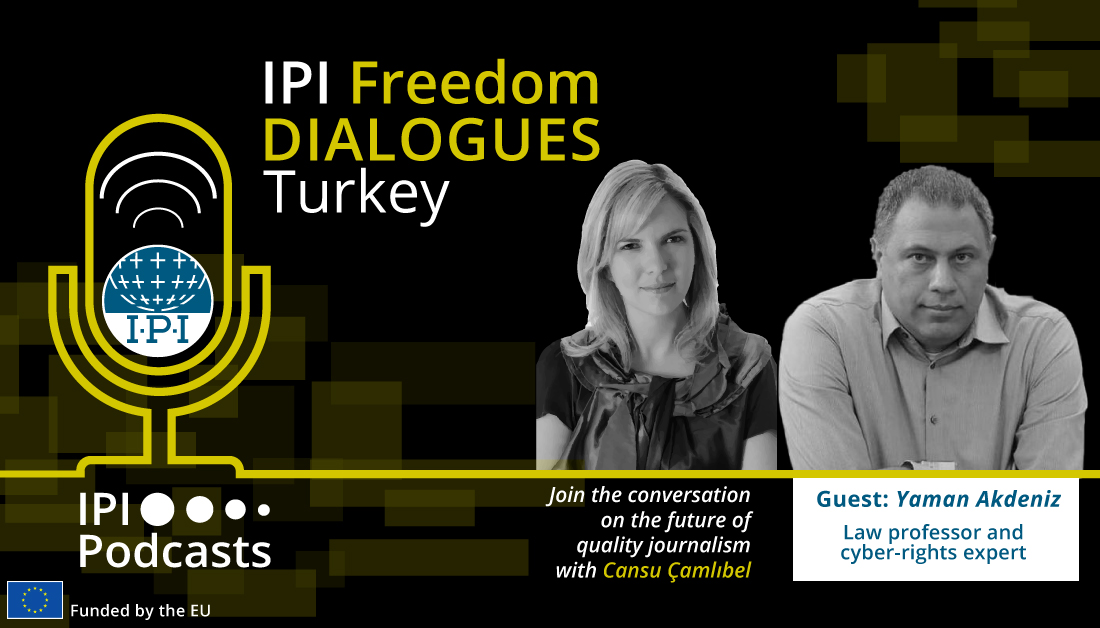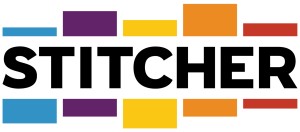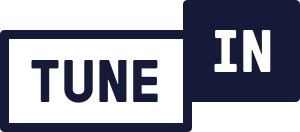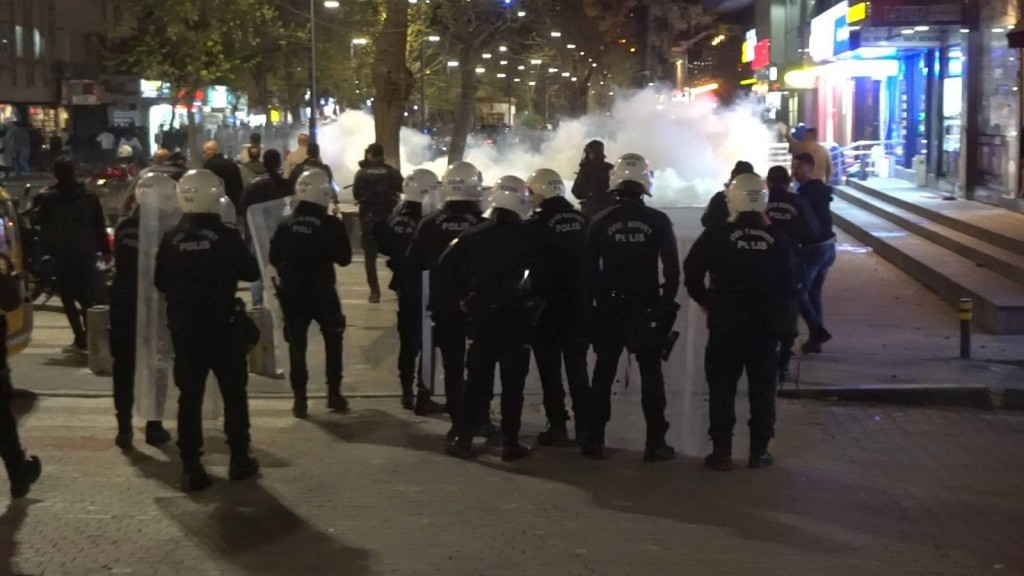Also available on:
The fifth episode of IPI’s podcast series IPI Freedom Dialogues: Turkey is out now!
In the fifth episode of IPI Freedom Dialogues: Turkey podcast, host Cansu Çamlıbel and her guest Yaman Akdeniz, a prominent Turkish academic and cyber-rights expert, discuss Turkey’s controversial new social media regulations . The new social media law passed in July 2020 places huge liability and legal responsibility on social media platforms and is widely seen as a new tool for the Erdoğan government’s regime to censor content online and put freedom of expression and journalism at great risk.
Previous episodes of IPI’s Freedom Dialogues: Turkey podcast are available here.
Online media, and especially social media, re-shape and re-produce language, impacting societal consensus or polarization around certain issues in Turkey. Independent media outlets, which depend heavily on their social media presence, keep trying to deliver the news to the public despite numerous restrictions and state-led harassment. But the new law will restrict the free space for news and information online. It will require foreign social media platforms to appoint Turkey-based representatives to carry out content removal requests from Turkish authorities.
In this episode, Akdeniz gives a general framework of the law and highlights that the new regulation is not necessarily “new”, mentioning that it was actually an amendment to a 2007 law that kicked off Turkey’s efforts to regulate the Internet. “The new regulation creates a danger of becoming a part of the Turkish judiciary system”, Akdeniz says.
As host Çamlıbel pointed out, hope remains that these large tech companies will remember their motivation of providing people with these online platforms, which serve as a last battlefield for freedom of expression in Turkey, when they decide how to respond to the law.
Topics covered in the podcast include:
- General assessment on what the new social media law means for journalists, activists and other members of the society as social media users
- Great legal and social liability that the law puts on big tech companies
- Possible outcomes for social media platforms and what to expect from them as a response
- The criteria and standard procedure for big tech companies such as Twitter to answer the blocking demands from countries
- Difference between Germany’s social media law and its newly Turkish version
- The consequences for independent news media if social media networks comply with the regulation
- How would this law affect the government and its supporters, who heavily use social media and make good use out of it
About IPI Freedom Dialogues: Turkey
The International Press Institute (IPI) is proud to launch the new podcast series IPI Freedom Dialogues: Turkey, a platform for timely, vital conversations on press freedom, freedom of expression and the future of quality journalism. You’ll get the inside story from some of Turkey’s most trusted editors, journalists and relevant experts as they analyse and shed light on key journalism-related issues in Turkey for both local and international audiences. Episodes will be available in both English and Turkish.
As independent journalism in Turkey faces massive repression, its practitioners are fighting to keep the public informed and reinvent the profession to face the challenges to come. Hear from the experts.
IPI Freedom Dialogues: Turkey is hosted by Cansu Çamlıbel, editor-in-chief of the popular English language news site Duvar English and a member of IPI’s Turkey National Committee. Before joining Duvar, Çamlıbel was the U.S. correspondent of Hürriyet Daily News.
Highlights from the episode (Yaman Akdeniz):
“Turkey is the world champion on blocking access, with 5487 requests to Twitter.”
“Now, judges are entitled to ask content providers, news organisations to remove content from their server. But also they can ask this to social media platforms operators to remove or to completely close down social media accounts.”
“Having legal representatives and establishing offices in a hostile country like Turkey from a judicial perspective where there are serious allegations that there is no rule of law and that the judiciary is not independent will be a major challenge for these companies.”
“The decision of whether they will have an office here or not cannot be based on only business needs. These platforms need to take human rights, data privacy as well as freedom of expression into account. Access to information issues need to be part of these considerations by the social media platforms.”
“If these companies do come and open offices, the next call will be from Azerbaijan and Kyrgyzstan, Turkmenistan where there are serious concerns about human rights. They need to think very hard before coming to a conclusion.”
“German (social media) law inspires authoritarian regimes. All scholars and civil society organisations did protest against that legislation as well. The Turkish version is 10 times worse than that.”










